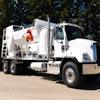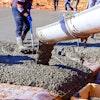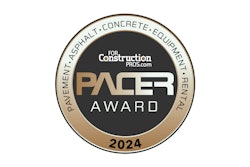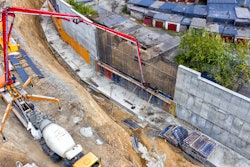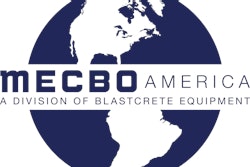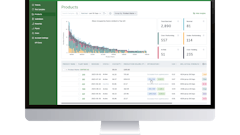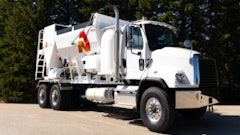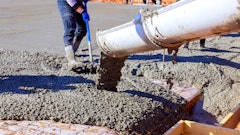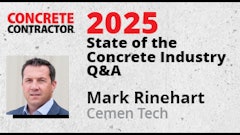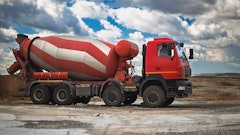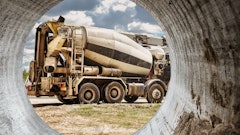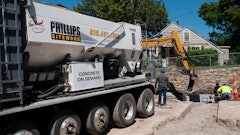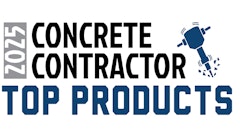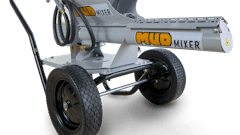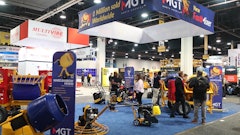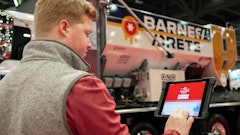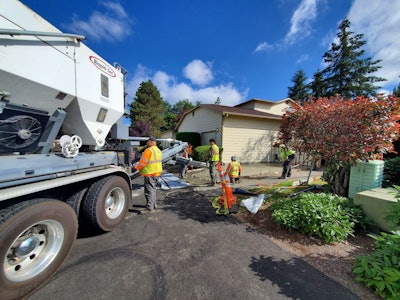
Asphalt and pavement maintenance companies can find synergies and ancillary revenue streams from offering concrete services to their customers. But they face a big challenge that the concrete specialists don’t: Scale. Round-tripping to the concrete plant every day to buy 30 yards of concrete for a job that’s a fraction of that size creates waste. Offset waste with increased prices and it’s harder to compete. Keep the customers’ prices down and you cut into margin.
Tom Merry, owner of Rainier Asphalt & Concrete, faced this test when he purchased a company in Seattle that was doing small concrete utility restoration patches in 5’ x 10’ and 10’ x 10’ panels. His previous experience was in residential driveway sealcoating and small commercial paving and striping projects. Concrete was new.
“A lot of concrete companies will go out and do big 100-yard pours,” Merry says. “We need a yard-and-a-half here, and then a couple of hours later, another yard-and-a-half, maybe four yards to finish out the day.”
Part of a business growth strategy
Rainier stuck with primarily outside concrete delivery at first. The reason: Sticker shock. Merry went to World of Concrete thinking he’d buy a volumetric mixer but wasn’t ready for the half-million-dollar investment.
That changed over time as Rainier grew. First there was a half-million-dollar investment in asphalt milling equipment that paid off. Then new locations in Tacoma and Everett.
Merry knew better than to “bite off too many big initiatives all at once.” When the time was right, he applied that same ingenuity to improve the profitability and efficiency of Rainier’s concrete operations. The company purchased both a used and new Cemen Tech C-Series Volumetric Mixer. The models are fully automated and allow Rainier’s drivers to batch, measure, mix, pour, record, and analyze jobs digitally as they go.
Cost savings come fast but not easy
The trucks cut costs immediately. Instead of $600-700 per yard of outside concrete, Rainier spends $110 per yard on their own.
But it wasn’t quite as easy as it looked at first. Merry recalls “the initial pain and suffering” of the first six-months of integrating the mixers into operations. They made mistakes around perfecting the temperature of the water and the temperature of the aggregate, especially that first winter. They eventually brought in Cemen Tech to train and get them on track. Onboarding new drivers now takes just two weeks.
Concrete “isn’t terribly complicated,” Merry says, but there are some things “you can only really learn from experience.” With operations streamlined and lessons learned, the biggest savings come on municipal road projects completed on weekends and in evenings. Opening the concrete plant in off-hours costs a premium – sometimes up to $4,000 per yard. And waiting on delivery adds to crew hours.
“Our crew can be a lot more efficient,” Merry says. “Now we control our dispatch, so we can set up three or four jobs in a day and know that our truck is going to be following them around, and they're not going to be waiting for the concrete.”
New markets an unintended consequence
In a funny twist, Merry says he wasn’t motivated by business growth in getting his volumetric mixers. Growth was an “unintended consequence” of efficiency. Rainier now bids and wins more of these municipal projects.
Rainier has also multiplied their daily concrete work to 20- to 30-yards of concrete per day by centralizing services from one office giving them the ability to serve up and down the I-5 corridor in the Seattle metro area. For longer-distance projects they’ll still supplement their concrete with delivery for max flexibility.
The latest growth for Rainier was another unintended consequence, this time of Merry’s commitment to retaining top concrete talent. In February, Rainier purchased a retail concrete manufacturer. Merry views it as a key to business stability that adds some ancillary revenue.
“We were almost too efficient. So, we really pursued the outside retail acquisition to try to augment that to make a full paycheck for our drivers. All this stuff doesn't work if you don't have drivers,” Merry says. “We are pursuing that to make a well-rounded operation that works for our employees.”
Environmental benefits
Although he’s a 25-year asphalt veteran, it would be fair to say that Merry has become a bit of a concrete enthusiast since launching his volumetric operation.
“We’re using 100% recycled aggregates, none of our rock is virgin aggregate that's having to get mined, which is great because you're disturbing the earth less. There's a huge carbon footprint we’re reducing,” he says.
Merry calls the volumetric business “awesome,” one that any asphalt company owner should be able to get behind.
“One of the coolest things is that it’s exceedingly green. Concrete production has, pound for pound, the highest carbon footprint of any building trade, more than lumber, more than steel, more than anything,” Merry explains. “With volumetric there's exactly zero waste.”


